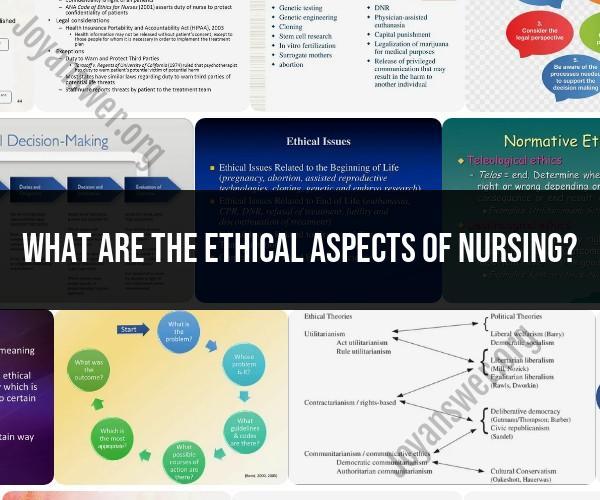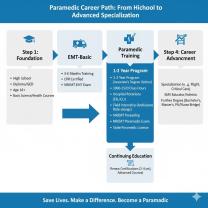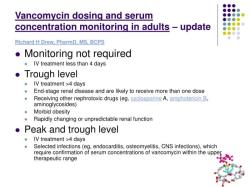What are the ethical aspects of Nursing?
Ethical aspects are fundamental in the field of nursing, as nurses are entrusted with the well-being and care of patients. Here is a comprehensive overview of some of the key ethical aspects of nursing:
Patient Autonomy: Nurses respect and support a patient's right to make decisions about their own care, including informed consent for treatments, procedures, and participation in research studies. They provide information to patients to help them make informed choices.
Beneficence: Nurses strive to promote the well-being of patients and act in their best interests. This includes providing competent care, addressing pain and suffering, and advocating for patients' needs.
Non-Maleficence: Nurses are committed to "do no harm." They take measures to avoid causing harm to patients, including preventing medication errors, reducing infection risks, and ensuring patient safety.
Justice: Nurses ensure that care is distributed fairly and equitably. This involves allocating resources, time, and attention in a manner that does not discriminate against patients based on factors such as age, gender, race, socioeconomic status, or disability.
Veracity: Nurses uphold truthfulness and honesty in their interactions with patients, colleagues, and other healthcare professionals. They provide accurate information to patients and collaborate transparently with the healthcare team.
Confidentiality: Nurses maintain the confidentiality of patient information. They protect patient privacy and only share information with those who have a legitimate need to know for patient care purposes.
Accountability: Nurses are responsible and accountable for their actions and decisions. They must be aware of and adhere to nursing standards, guidelines, and legal regulations governing their practice.
Advocacy: Nurses act as advocates for patients, ensuring that their rights and preferences are respected. They may speak on behalf of patients who are unable to express their wishes or navigate the healthcare system.
Cultural Competence: Nurses recognize and respect the cultural and religious diversity of patients. They provide culturally sensitive care and consider cultural beliefs and practices when planning and delivering care.
End-of-Life Care: Ethical dilemmas often arise in end-of-life care. Nurses support patients and their families in making difficult decisions regarding life-sustaining treatments, hospice care, and palliative care.
Research Ethics: Nurses involved in research follow ethical guidelines and obtain informed consent from study participants. They prioritize the safety and well-being of research subjects.
Resource Allocation: Nurses may face challenges in resource-limited settings, such as deciding how to allocate scarce medical resources like ventilators during a crisis. Ethical frameworks guide these decisions to ensure fairness and transparency.
Nursing Values: Ethical nursing practice is guided by professional values such as compassion, integrity, altruism, and empathy. These values shape the nurse-patient relationship and drive ethical decision-making.
Continuing Education: Ethical nursing practice involves staying up-to-date with the latest evidence-based practices and participating in ongoing professional development to provide the best care possible.
Whistleblowing: Nurses have an ethical duty to report any unethical or unsafe practices they observe within their healthcare organizations to protect patient safety.
Ethical considerations in nursing are complex and evolving, and nurses often encounter situations that require careful ethical deliberation. Ethical decision-making frameworks and codes of ethics help nurses navigate these challenges while upholding the highest standards of care and integrity.












